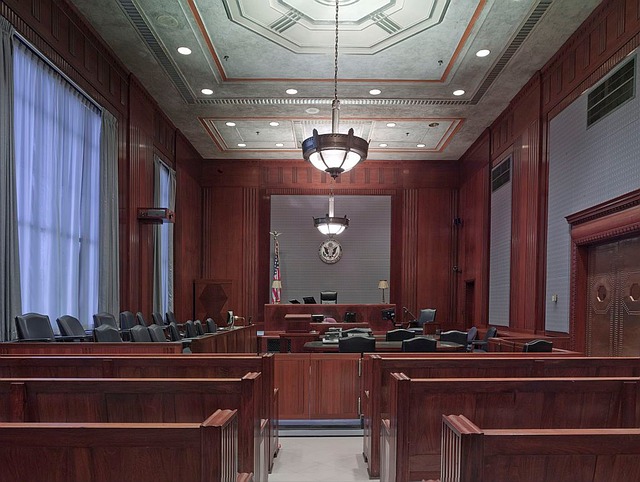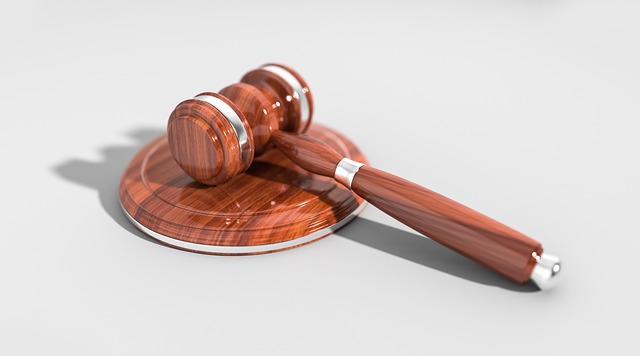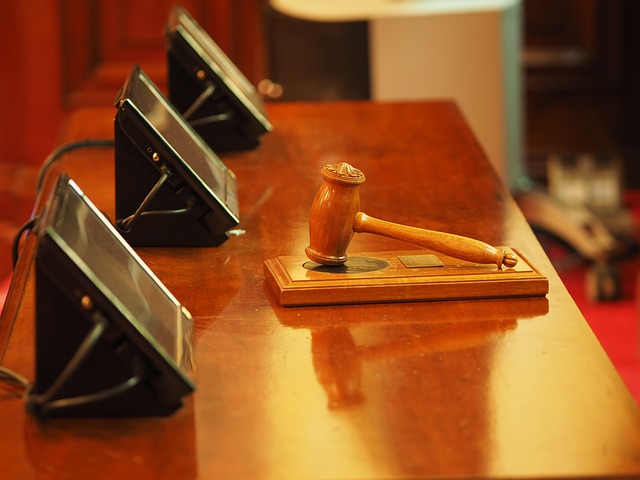What Does Disposed Mean in Court?
Our product recommendations are made independently, but we may earn affiliate commissions if you use a link on this page.
When it comes to court cases, it is difficult to understand all of the terminologies that are involved, unless you work in the system. Because of this, if you have a case in the courts, you may not understand everything about it.
As the case progresses, you may or may not know everything that is going on, even if you have a great lawyer. However, when your case is said to be disposed, you may want to understand why.
If you are curious about what disposed means in court, then you will want to keep reading below. You never know when this term will apply to you and a case you are involved in.

What Does Disposed Mean in Court?
When you are involved in a court case, you may have noticed at some point that the records show that your case has been disposed. In a court setting, this typically means that the case has come to an end.
Once all of the proceedings have been completed, a judge will usually make their final judgments. After this occurs, a case is considered to be dismissed, or in the terminology of the courts, it is disposed.
It is important to keep in mind that even once a case has been disposed of, the individuals involved can still appeal the decision. This is, of course, unless they choose to accept the decision as it was laid out.
Overall, when a case has been decided for whatever reason, it is considered to be finished, or otherwise referred to as disposed of. It is important to understand that there are many reasons that a case has been dismissed and it is important to know what each of these reasons means.
Reasons a Case May be Disposed
When the proceedings of a case have finished, there may be several reasons why a judge will choose to dispose of the case. These reasons are typically determined by the overall events that occurred throughout the court case.
When you are involved in a court case, you are likely to only know that your case has been disposed of after your legal representative has informed you. Other ways you may find out that your case has ended is by checking the court documents that will also show the judgment.
If you are wondering about the reasons why a court case may be disposed of, keep reading to learn more.
Dismissed With Prejudice
In some criminal cases, after the proceedings have finished, a judge will decide that will end the case overall. This means that they will typically take into consideration all of the evidence presented throughout the case before they decide how to proceed.
If a judge has determined the case to be dismissed with prejudice, it means that the person is free to go. This decision is typically based on whatever evidence has been presented which leads them to dismiss all charges in the case.
It is important to keep in mind that if a judge dismisses a case with prejudice, it also means that the person cannot be retried for the same reasons. This prevents the prosecution from attempting to retry the case for any reason.
Dismissed Without Prejudice
Another reason a case may be disposed of is when it is determined that there is not enough evidence to render a decision. In a case such as this, a judge may dismiss the case without prejudice.
When this occurs, it means that the court is leaving the case so that if the prosecution can collect additional evidence, the case can be retried. This also means that the defendant is not off the hook for the specific crime, but they are free to leave until the case is decided to be retried.
In many of these types of cases, depending on the circumstances, there may be a time limit to how long this reopening can occur. If you are not sure about the length of time for the prosecution to bring the case up again, it is recommended that you consult with your attorney.
Guilty Plea
A court may also dispose of a case if the defendant chooses to plead guilty for whatever offense they are accused of committing. In some court cases, this only occurs if a legal professional determines that they may not be successful in getting the judgment they are seeking.
When the defendant is being arraigned, they can typically choose whether to plead guilty or not guilty to the crime. If they choose to plead guilty, there is no reason to have a trial, and terms are determined between the two parties involved.
Most of the time, a guilty plea occurs due to a plea bargain that has been put in place between the prosecutor and defense attorney. When this happens, the case is disposed of because a guilty plea prevented it from going to trial.

Guilty Verdict
When a court case is not dismissed before a trial date, then both sides of the case will argue their best to get the courts to see things their way. In some cases, if the evidence against a defendant is strong, then a guilty verdict is rendered.
This typically happens when the case against a defendant has so much evidence that a jury and judge see no other reason to dismiss the case. Because of this, and once all evidence is heard by both sides, a guilty verdict is usually given.
Once the guilty verdict has been handed down and the case moves on to the sentencing stage, the court case is typically determined to be disposed of. This means that the court proceedings have come to an end.
Not Guilty Verdict
In the same manner, as the guilty verdict, once the court has heard evidence from both sides of the case, they decide based on the entire proceedings. If the evidence against the defendant is not strong enough, the court may determine that the defendant is not guilty of the charges.
When an individual is determined to be not guilty of the crime they were charged with, the case against them is disposed of. This means that unless there is an appeal, the individual is free to go at any time.
Lack of Jurisdiction
Another reason a case may be disposed of unexpectedly is if it is determined that the court where the case is being tried lacks jurisdiction for the specific crime. This often happens when the crime in a case occurs in another state and should not be tried anywhere else.
The bad news for this type of reason is that it will most likely be turned over to the jurisdiction in question to pursue the case in question. If this is the case, you will likely be asked to return to the state of the jurisdiction where they can pursue the case against you.
Double Jeopardy
A final reason a case may be disposed of is when it meets the definition of double jeopardy, which means that you cannot be retried for the same crime. Because this is in the U.S. Constitution, the only exceptions would be if the case becomes a federal case, which means you can be tried for the same crime twice.

What Happens After a Case is Disposed?
After a case has been determined to be disposed of, or dismissed, you may be wondering about the next steps. It is important to understand that whatever happens next is determined by the outcome of the case.
Sentencing
When all of the legal proceedings have taken place in a particular case, and the defendant is determined to be guilty, then there are several steps to take next. In most cases, they will then await their time to come back before the judge to find out how long they will serve in prison.
Case is Expunged
For some court cases, after it has been disposed of for whatever reason, it can still be expunged by a judge. In cases such as these, the action to get the case completely expunged, or taken off, a person’s record can take some time and is determined by a judge depending on the level of the crime itself.
Records are Sealed
Another possibility of what may occur after your court case has been disposed of is that of the records being sealed. Depending on the specific circumstances of the case, the judge may choose to seal the records instead of expunging them, which means they are no longer available to the public.
Reduced Felony Charge
In other cases, it may be determined that a person could have been charged with a lesser offense but instead was charged with a felony and may have choices. If a lawyer pursues the case, a judge can allow the charges against the person to be reduced to a lesser charge.
Final Thoughts on What Does Disposed Mean in Court
The bottom line when it comes to what disposed of means in the court is that it means that the case has been dismissed. This is typically what happens when the court proceedings have taken place and a conviction is reached.
Reference Legal Explanations
If you use any of the definitions, information, or data presented on Legal Explanations, please copy the link or reference below to properly credit us as the reference source. Thank you!
-
<a href="https://legal-explanations.com/blog/what-does-disposed-mean-in-court/">What Does Disposed Mean in Court?</a>
-
"What Does Disposed Mean in Court?". Legal Explanations. Accessed on December 14, 2024. https://legal-explanations.com/blog/what-does-disposed-mean-in-court/.
-
"What Does Disposed Mean in Court?". Legal Explanations, https://legal-explanations.com/blog/what-does-disposed-mean-in-court/. Accessed 14 December, 2024
-
What Does Disposed Mean in Court?. Legal Explanations. Retrieved from https://legal-explanations.com/blog/what-does-disposed-mean-in-court/.